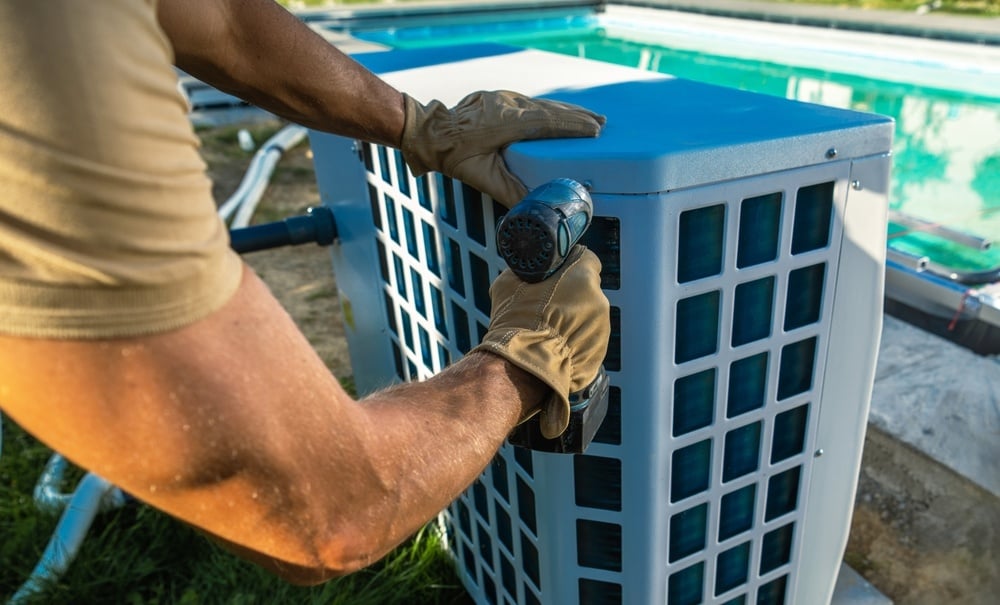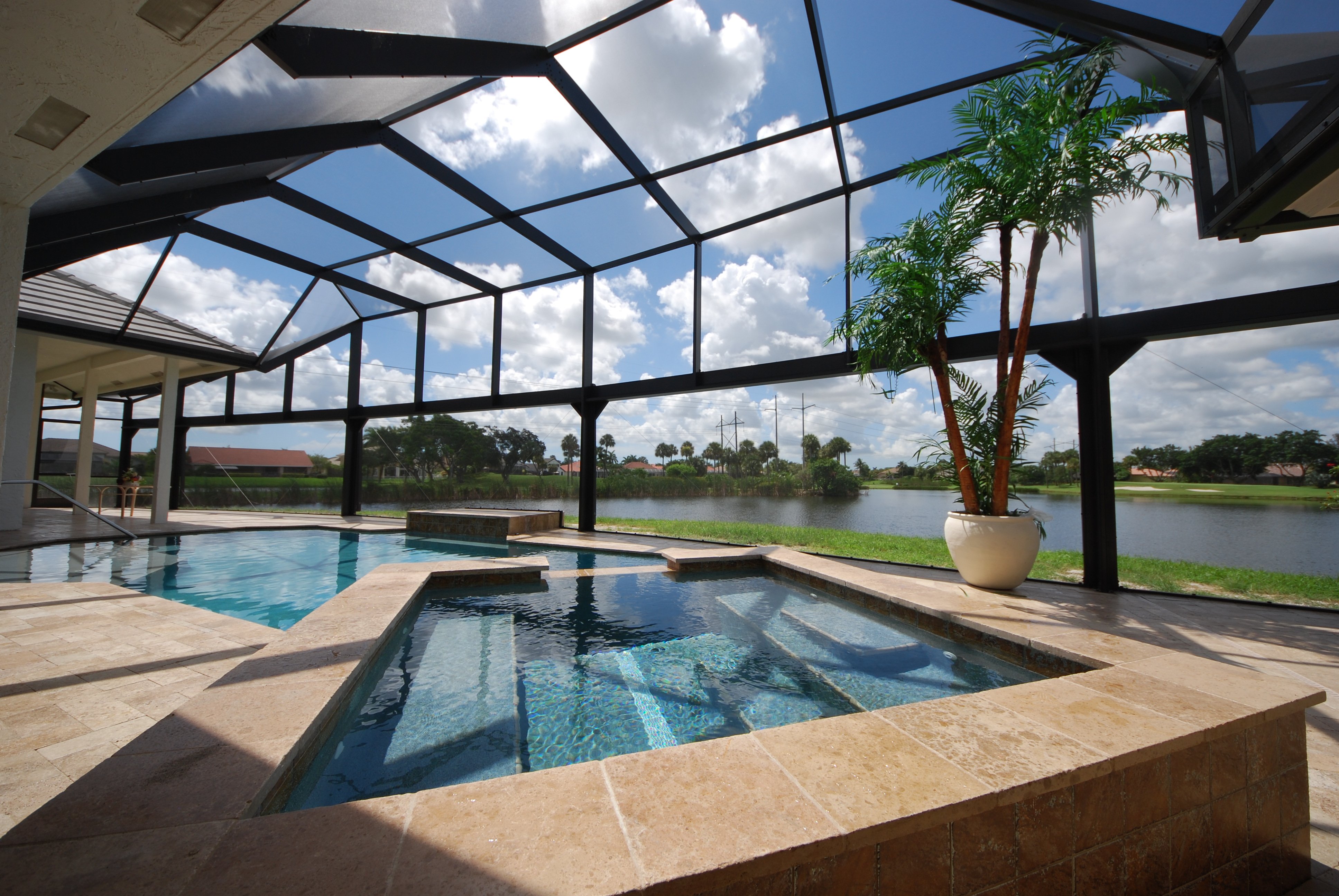Navigating Florida's Pool Regulations: A Homeowner's Handbook
Are you dreaming of having a swimming pool in your Florida home, creating a luxuriously fun space in your backyard? Or do you already have a swimming pool and find it challenging to keep up with Florida's residential swimming pool regulations? In either case, it's important to understand Florida's pool safety laws.
Non-compliance can lead to legal issues and potentially endanger the safety of you and your loved ones.
Knowledge is power, and as a homeowner, this simple guide aims to navigate you through the labyrinth of Florida's swimming pool regulations. We'll delve deep into the specifics of South Florida and Treasure Coast rules, decode the process of obtaining permits, and unveil the significance of adhering to safety standards.
We will help you maintain compliance and offer insightful pool compliance tips to ensure that your time spent poolside is safe, fulfilling, and within all the relevant statutory requirements.
Consider this your GPS as we explore the specifics of residential pool regulations in Florida, providing you with a clear route to peace of mind in your backyard paradise.
An Overview of Florida's Swimming Pool Regulations

Florida is known for its sunny weather and high pool ownership rates, making swimming pool safety laws essential for every homeowner in the state. The Florida Residential Swimming Pool Safety Act, enacted by the Florida Legislature in 2000, lays out the basics of these regulations for all homeowners in South Florida and Florida's Treasure Coast.
The act's main intent is for all newly constructed residential swimming pools, spas, and hot tubs to be equipped with at least one specific pool safety feature.
Key Laws and Standards
Diving into the specifics, the Florida Building Code outlines key regulations for residential swimming pools. These include detailed construction requirements to ensure stability and safety. For instance, pool walls must be designed and built to withstand certain pressure levels, while pool drains need to meet specified anti-entrapment standards.
Safety Requirements
Safety features are a significant component of Florida pool regulations. The Florida Department of Health recommends homeowners use a combination of the prescribed barriers to ensure maximum safety. One requirement is an approved safety cover for the pool. This is not just a good-to-have addition, it's a necessity under Florida law.
However, the safety features don't stop at covers. New pools must have additional features like pool alarms, self-closing gates, and fences that meet certain height requisites preventing unsupervised access by children.
Beyond standard safety features, there are also regulations for gates leading to swimming pools. These gates must be self-closing and self-latching, designed to open outward away from the pool, and equipped with latching devices at least 54 inches above ground level. These measures help prevent unintentional, unsupervised access to your swimming pool, especially by children.
All these regulations might seem overwhelming. Still, it's vitally important for homeowners to understand and adhere to them. The more you know, the safer your pool will be, keeping everyone in your home and your community safe while enjoying the Florida sunshine.
Local Variations in Pool Regulations to Remember
Specifics of South Florida Pool Regulations
In addition to the general state regulations in South Florida, some counties have enacted their own swimming pool guidelines.
For instance, in Miami-Dade County, any pool intended for children under five must have self-latching devices located at least 54 inches above the floor on doors providing direct access to the pool.
Further, in Broward County, residential swimming pools cannot be directly accessible from a home, meaning a fence or barrier of a certain height must separate the pool from the home. Therefore, homeowners must familiarize themselves with additional county and/or municipal requirements to ensure full compliance.
Requirements on Florida's Treasure Coast
Regulations governing pool safety on Florida's Treasure Coast extend state requirements. For example, Martin County requires backwash from the pool filters to be disposed of through the sanitary sewer system or other approved disposal systems, it shouldn't be discharged into the stormwater system.
St. Lucie County, another Treasure Coast community, requires pool filters to be manually cleaned out at least once per week, and the water must be refilled from the bottom to prevent splash out or uneven water temperatures. These area-specific domestic pool regulations add a layer of safety and environmental considerations for homeowners.
Understanding these local variations in pool regulations are crucial in preserving the safety of your pool and remaining compliant with the laws. Homeowners should consult a reputable South Florida pool builder, like Fountain Blue Pools, who is well-versed in these regulations and can ensure compliance.
The Importance of Compliance for Your Florida Pool
Legal Implications of Non-Compliance
If you are a homeowner in Florida with a residential pool, you must comply with all the state and local pool safety laws. Non-compliance can lead not only to severe penalties but also to potential legal issues. Fines can be levied, and in some cases, mandatory closure or removal of the pool might be ordered.
Moreover, in the unfortunate event of pool-related injuries or accidents, compliance with regulations is a critical aspect that juries and courts consider when determining liability. Hence, maintaining compliance is an essential act of due diligence.
Safety Considerations
Beyond the legal implications, compliance is also pivotal from a safety standpoint. The Florida Department of Health recommends combining the described barriers and safety features like fences, gates, drain covers, and alarm systems. Doing so not only meets the legal requirements but also increases the safety of your pool.
By adhering to the Florida Residential Pool Safety Act you ensure that your loved ones and your guests are safe around the pool, significantly minimizing the chance of accidents.
Navigating the Permit Process
Steps to Obtain a Pool Building Permit
Building a new pool or renovating an existing one requires obtaining the right permits, in addition to complying with safety regulations. The process typically involves submitting comprehensive plans to your local building department, including details like the site plan layout, dimensions, and proposed safety features.
An assigned inspector then reviews these plans to ensure they meet all Florida pool regulations and standards.
Working with Qualified Professionals
Securing permits and ensuring compliance with laws can seem overwhelming, but working with qualified professionals is easier. Experts like Fountain Blue Pools have extensive experience navigating the regulatory landscape. They can guide you throughout the process, ensuring your pool is compliant, safe, and enjoyable.
If your pool isn’t meeting the legal requirements, consider consulting a contractor familiar with Florida’s pool regulations and installing additional safety features. This way, you can relax knowing that your pool is both attractive and, above all, safe.
Maintaining Compliance Post-Construction
Regular Inspections and Updates
Once your swimming pool is constructed, your responsibility doesn't end here. It's crucial to adhere to the Residential Swimming Pool Regulations in Florida not just during construction but also after, through regular inspections and maintenance. Routine inspections ensure that your pool area complies with the state's safety laws, and any identified issues can be promptly addressed.
To maintain compliance, ensure each feature required by law, including the pool barrier, gates, and drain covers, is in proper working order. Pool barriers should be sturdy without gaps and maintain the necessary height as specified in the laws. Remember, the function and safety of these features are essential in preventing accidents.
Upgrading Older Pools
Florida's Pool Safety Laws are evolving, which means if you have an older pool, it may not meet the current standards. In such instances, it's essential to consider upgrading your pool to align with the latest safety norms. This might involve retrofitting the pool with new safety features or enhancing existing ones.
Fountain Blue Pools' team of professionals can help guide you through this process, advising on the precise upgrades your older pool might need to meet the Swimming Pool Regulations in South Florida. Pool compliance isn’t a one-time process and requires constant attention to rules and regulations.
To ensure your pool remains a safe and enjoyable feature for your family, continuously monitor any changes to the laws and seek professional advice as necessary. Remember, compliance is more than legal necessity, it's about the safety of you and your loved ones.
Hire a Knowledgeable Partner for Your Next Project: Fountain Blue Pools
.jpg?width=1195&height=800&name=Fountain%20Blue%20Pools%20~%20Awards%20and%20Award%20Winning%20Pools%20(25).jpg)
In summary, adhering to Florida's residential swimming pool regulations is critical for both safety and avoiding legal issues. These laws are designed to protect homeowners and their families. They stipulate safety features like barriers and approved pool covers, ensuring all pools present minimal risk and are suited to the Sunshine State's climate and lifestyle.
If you're feeling overwhelmed by Florida's pool safety laws or unsure how they apply to your home pool, remember you don't have to navigate these complex rules alone.
Whether you're beginning a new pool construction project, upgrading an older pool, or simply maintaining your pool, you can rely on Fountain Blue Pools to guide you through every step.
Our extensive experience and depth of knowledge in local regulations ensure your pool will be compliant, safe, and enjoyable for years to come.
Why not book a free consultation with our team today? We can fully assess your pool's current compliance and suggest required updates if needed.
For further insights into our work, take time to explore our gallery showcasing some of our exceptional residential pools or peruse our reviews and awards
You May Also Like
These Related Stories

Swimming Pool Heater Repairs: What South Florida Homeowners Need to Know

What South Florida Homeowners Should Expect When Remodeling a Pool







Comments (1)